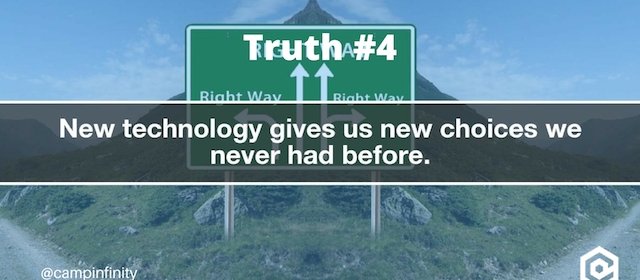
"Technology Made Me Do It!"
Have you ever heard someone claim “the devil made me do it!” to escape responsibility for their actions? Passing the buck and blaming someone else isn’t a new strategy. Adam and Eve, the first people God created and the first sinners, did the same thing.
Article Header
« Return to Main Page"Technology Made Me Do It!"
Have you ever heard someone claim “the devil made me do it!” to escape responsibility for their actions? Passing the buck and blaming someone else isn’t a new strategy. Adam and Eve, the first people God created and the first sinners, did the same thing.
When God called them out for their sin, Adam shifted the blame to his wife and, ultimately, God:
“The woman whom You gave to be with me, she gave me of the tree, and I ate” (Genesis 3:12).
When God challenged Eve, she pointed the finger at the serpent that tempted and deceived her,
“The serpent deceived me, and I ate” (Genesis 3:13).
But did God accept their excuses? No way. He punished the serpent, Eve, and Adam for their sin. They bore the blame for their part in the wrongdoing.
In our technological age it might be easy to blame technology for poor choices. This brings us to the fourth truth of technology in our on-going tech truth series.
We are never forced to do anything because of technology. It does not make choices for us.
Here’s an example. It’s easy to blame video game addiction on the purposefully addictive design of the games. But we aren’t forced to play. It’s a choice. Or what about sinful attitudes of materialism? The overwhelming prevalence of ads on our televisions, social media accounts, games, and in our inboxes creates the perfect environment for sinful attitudes of discontentment, envy, and greed to flourish. But we aren’t forced to be discontent and materialistic. It’s a choice and we are responsible before God for our choices. The “blame game” will not work when we stand before the holy Judge and give an account of our actions.
We need to take responsibility for our own actions, not blame technology (or anything else!) for what we do.
I’d like to acknowledge John Dyer and his book From the Garden to the City: The Redeeming and Corrupting Power of Technology from which I gained the insights for this series on Truths of Technology.
You can read the first few blogs in this series at the below links:
Overview: Nine Truths of Technology
Truth 1: God’s Plan and Technology
Truth 2: Technology, Culture, and Change
Truth 3: There’s No Such Thing as Perfect Technology








